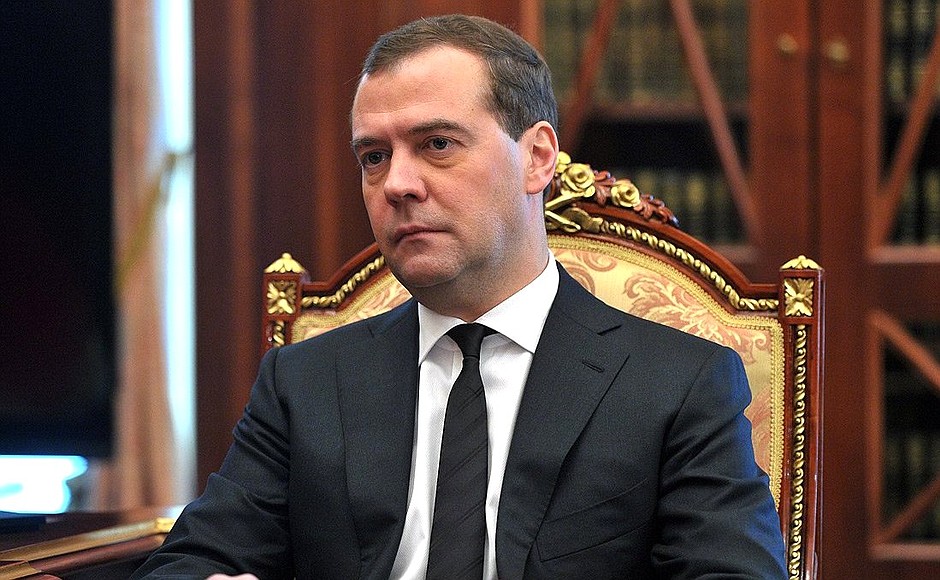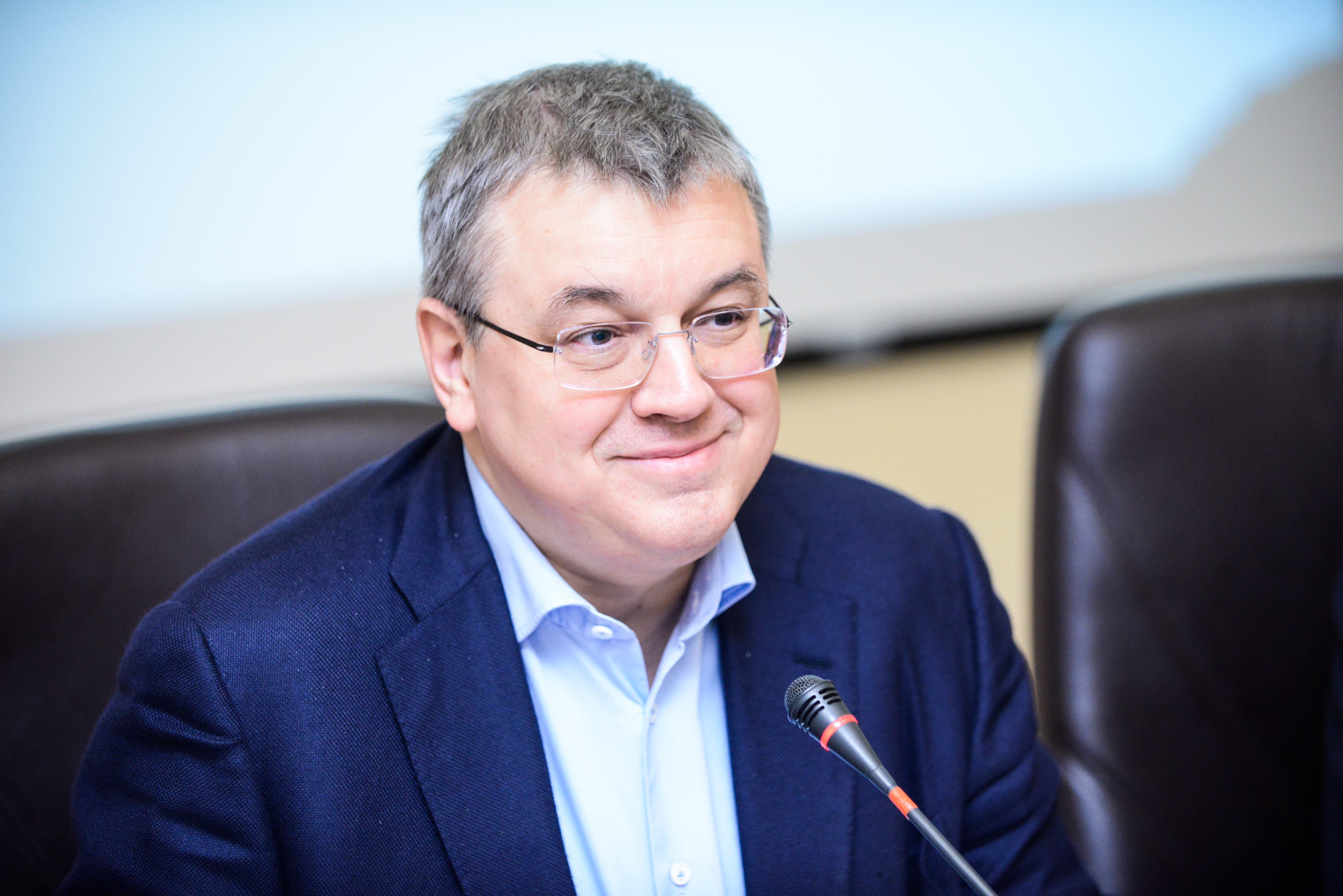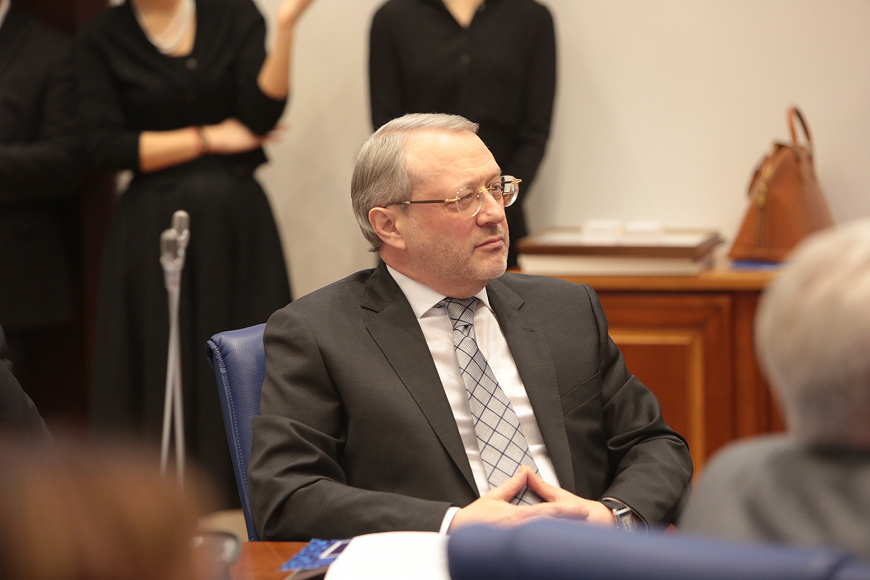‘In Many Cases, We Are Falling Behind not by Years, but by Orders of Magnitude’: HSE Experts Suggest Ways to Speed Up Russia’s Technological Development

Yaroslav Kuzminov, HSE Academic Supervisor, and Leonid Gokhberg, First HSE Vice Rector, spoke at an expert meeting with Dmitry Medvedev, Deputy Chair of the Security Council of the Russian Federation, on issues of Russia’s technological development. They outlined the current state of research and development and offered suggestions on how to gear the economy towards innovation.
On July 15, Dmitry Medvedev discussed Russia’s technological development with experts at an online platform hosted by the Skolkovo Foundation. Mr. Medvedev reminded participants of Russian President Vladimir Putin’s recent approval of a new version of Russia’s National Security Strategy. ‘The security threats faced by the country include harm to national interests in the technological sphere. In order to minimize these risks, we need to continuously implement innovations in a variety of fields,’ he said. This will provide an opportunity to take advantage of the country’s competitive strengths.
He believes that Russia has these competitive strengths, ‘despite popular scepticism.’ He gave the examples of the space industry, aviation, sectors of the power industry, material science, physics research, nuclear technologies, metallurgy, and the information industry, including mobile communications development.
Russian companies are offering reliable software solutions that can be competitive both nationally and globally
At the same time, there are various challenges to overcome. One is the issue of human resources: ‘Unfortunately, the number of researchers in the country is not growing—and is even decreasing in some fields.’ Mr. Medvedev also mentioned issues in R&D funding and the fact that civil technologies are less reliable than military ones. ‘Despite the capacity we have, our country is still falling considerably behind global leaders, both in terms of investment in innovation and the results we are getting,’ he explained.

The issue of technological development is particularly important in the context of anti-Russia sanctions and the COVID pandemic. ‘But even without these factors, it is obvious that technological development is a key factor in the development of the economy and social sphere in any country. Here, solutions are always looked for on the state level, but with the attraction of wider expert communities,’ he believes.
Targeted Threats
Yaroslav Kuzminov, HSE Academic Supervisor, believes that a key element in science and technology policy is the ability to search and analyze relevant information. The Soviet Union had an effective system to facilitate this, but it collapsed along with the USSR. Today, there is no such system in the country, which is why institutions and companies incur ‘prohibitively high’ costs searching for technology innovations and developments.
That’s why decisions are often made at random. This is the so-called ‘first offer’ model. I’ve been told about it, I like it, and I do it. There is often no preceding analysis at all
The HSE Academic Supervisor believes that the cost of creating such a system would amount to several percent of the total amount spent on technology. The anticipated benefits of better decision-making in investment choice would be considerably greater. Such a system should be free for companies and organizations. He suggested creating questionnaires for research institutions, venture funds, development institutes, industry governmental bodies and major companies in order to ‘understand the real situation’ regarding innovation production and application cycles. Among other things, this will help to determine global competitive ability and the technological limitations felt by industries. ‘In some fields, we have already started feeling that Russia is purposefully left out when it comes to information on certain key technologies,’ Mr. Kuzminov said.
In order to remain competitive, companies must be able to reduce the time and cost of developing and launching new products—particularly in machine building. ‘In many cases, we are falling behind not by years, but by orders of magnitude,’ he warned, and said that analysis shows that leading international companies owe much of their success to digital modelling and virtual testing. There is a pressing need to implement fast digital prototyping in all fields—something which will require supercomputing power, the accumulation of big data, and the provision of access to such data.

Mr. Kuzminov outlined several more problems of innovation development in Russia, one of which is consumer-targeted product customization. Some fields, such as IT, are successful in providing this service. But generally, customization is not formalized in regulations and ends up being expensive, while companies are incapable of working with small and medium-sized clients. Maintenance, repairs, and staff education are another problem. Companies that promote their technologies in Russia often forget that they need to train staff in maintenance, and equipment needs to be repaired and eventually disposed of.
The HSE Academic Supervisor also talked about threats to the country’s science and technology development. These include the limitations on innovation production in internal markets, low levels of competition, the lack of favourable tax and customs regimes, low prices for raw materials and production components, disregard for global trends, and the lack of funding for fundamental and applied research.
Mr. Kuzminov said that experts from HSE University and other institutes can prepare a detailed report on the issues he addressed.
Turning Researchers into Celebrities
Leonid Gokhberg presented a detailed report on the state of Russian academic research at the domestic and international levels. He noted that there has been a considerable (twofold or even threefold) growth in publication activity in international academic journals. ‘But our competitors are still outpacing us. They are increasing their share of publications, while we’re in roughly the same position as before. We are currently back at our 2008 level of publication flow in global academia,’ he said.
Russia also has nothing to boast in terms of patent activity, where results are closer to technologies and markets. The flow of patent applications is diminishing, with about 1% of all applications currently coming from Russia. He warns that this has never happened before: ‘Even during the USSR’s isolation, activity in this field was considerably higher.’

According to Mr. Gokhberg, one reason for this is that the country’s research specializations haven’t changed in 25 years. ‘Specialized areas of Russian research haven’t changed: physics, space, Earth sciences, materials, and chemistry. Of course, it isn’t bad that we’ve retained our positions in these fields. But we are losing our leading position in other serious and dynamic fields of contemporary science. For example, we have no life sciences, computer science, cognitive science, or ecology—fields that are experiencing explosive growth today,’ he said.
He also believes that despite the considerable growth in research funding, Russia still hasn’t returned to 1990 levels. ‘Today, research expenditure is about two-thirds of what it was in 1990. This means that we have not caught up with the Soviet level of science funding, and that’s taking into account the comparative size of the Russian Federation.’ In absolute terms, science expenditure is growing at a slower rate than GDP.
‘In terms of relative indicators, science funding in Russia per researcher is half of that in Great Britain and almost four times lower than in Germany,’ Mr. Gokhberg said. ‘This has a wide range of effects on competitiveness—not only in terms of academic results, but also in terms of conditions for academics and the appeal of academia to younger researchers and leading scholars.’
Another negative factor is that despite increased science funding (in absolute terms) and the implementation of tools to support younger researchers, employment in academia is still falling. The main issue is the extreme inefficiency of the system for training academic staff, while academic careers also remain unappealing to young professionals.
Leonid Gokhberg believes that universities are the most successful research sector, with some accounting for three quarters of the publications in academic journals. At the same time, universities benefit from only 10–11% of research funding. He considers this an obvious sign of imbalance, with funds being allocated to less productive sectors disproportionately.
In the academic structure of Russia, research institutes receive the most attention despite being isolated from universities and businesses
Mr. Gokhberg believes that the key to developing the science sector is to launch modern mechanisms of prioritization and to depart from ‘the inertial agenda we’ve stuck to for two decades.’ ‘And, of course, we need to form and relaunch the system of science and technology forecasting,’ he added. It is also necessary to shift from annual funding for academic research to long-term programmes—at least for leading universities and research centres. Doctoral programmes also need to be reformed to increase the size of doctoral scholarships to match the average salary in Russia.
The country should retain and invest in leading researchers. Mr. Gokhberg noted that, ‘No one here is surprised by investment in sports stars or cultural icons, so let’s do the same for academics. If we want to compete for minds on the global market, we have to be competitive in terms of work and living conditions.’

